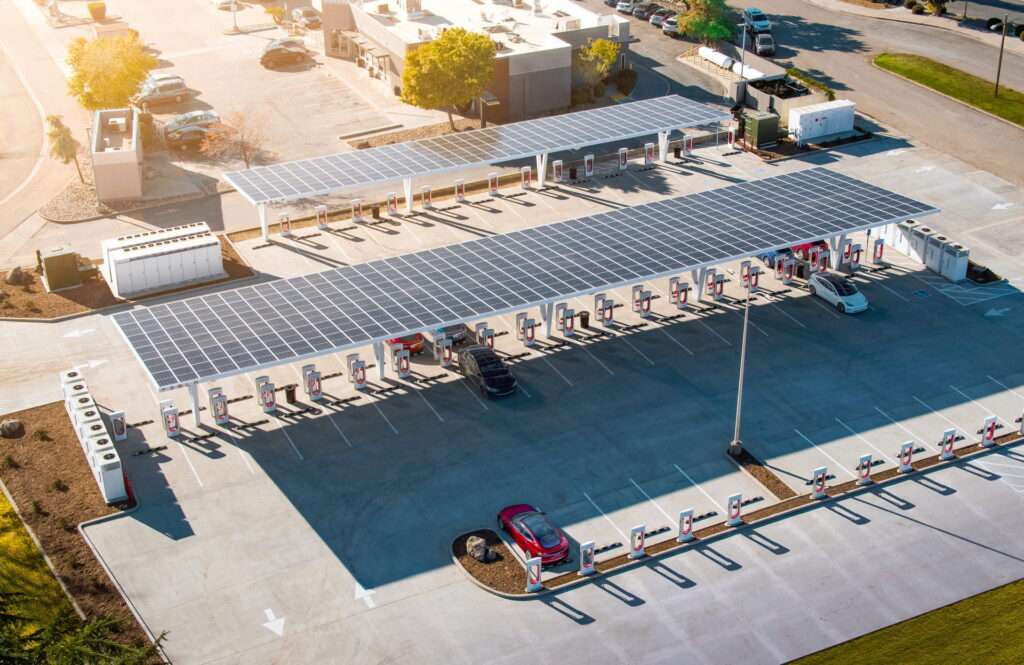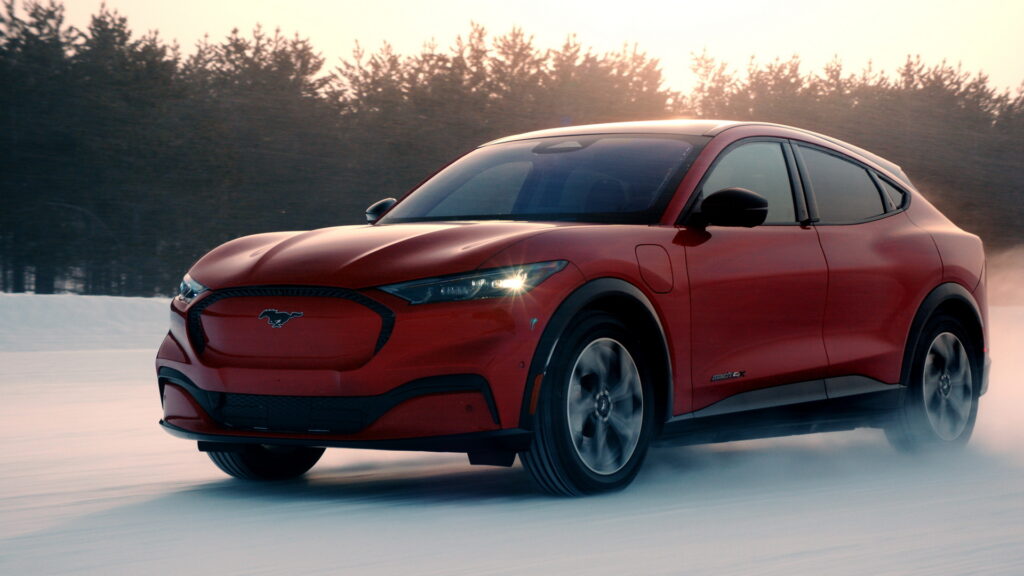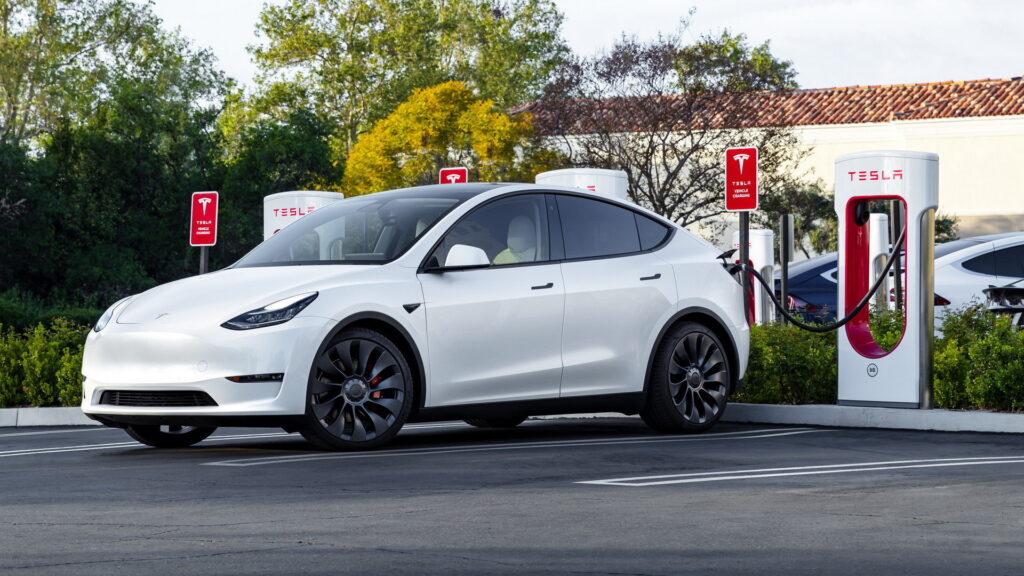The Department of Transportation is set to finalize requirements that will put more pressure on Tesla to open its charging network to other EVs in the coming weeks.
The automaker will have to expand beyond its proprietary plug design and offer the Combined Charging Standard (CCS) plug design, too, if it wants to qualify for subsidies under the National Electric Vehicle Infrastructure program, unnamed government officials told Reuters.
The program has $7.5 billion to dole out to charging networks around the country. Part of the Biden administration’s plan to convert 50 percent of new vehicle sales to electric by 2050, helping to develop a more widespread and reliable charging network will be crucial to encouraging consumers to buy EVs.
Finding a way to give more drivers access to Tesla’s charging network, widely seen as the largest, highest-quality, and most reliable network in the country, will go some way to opening America up to EVs.
Read: Tesla Accidentally Shows CCS Compatible ‘Magic Dock’ That Can Charge Other EVs

As it stands, Tesla vehicles use the automaker’s NACS plug, and its public chargers can only charge vehicles that accept it. Almost every single other electric vehicle uses the CCS charger, which means that they can’t really use Tesla chargers.
The company’s CEO, has previously indicated that Tesla plans to open up its network to other plug standards. Indeed, last month, the automaker may have accidentally shown a new charging dock design that has a plug that fits into vehicles that use both the NACS and the CCS designs.
Nevertheless, no official announcement has yet been made about opening the “Supercharger” network to other vehicles. Although CEO Elon Musk has said that he doesn’t want his company’s network to be a “walled garden,” there is a current financial incentive to maintain the wall.
“It’s definitely a balance for them: how much potential federal subsidies for expanding their network versus maintaining that competitive advantage on charging,” Chris Harto, a senior policy analyst at Consumer Reports, told Reuters.
Indeed, the automaker suggested in a letter to officials last year that its Supercharger network should qualify for subsidies if they are co-located with CCS chargers for competitors. Administration officials said that they did not take that suggestion seriously. Now, state officials say that the automaker is planning to take opening up its network to other plug standards seriously.
“We do understand that Tesla is looking to tweak their system to be more open access,” said Stuart Anderson, the director of Iowa’s Transportation Development Division. “So, if they do reach that point and meet those eligibility requirements, they certainly will be eligible for funding.”





